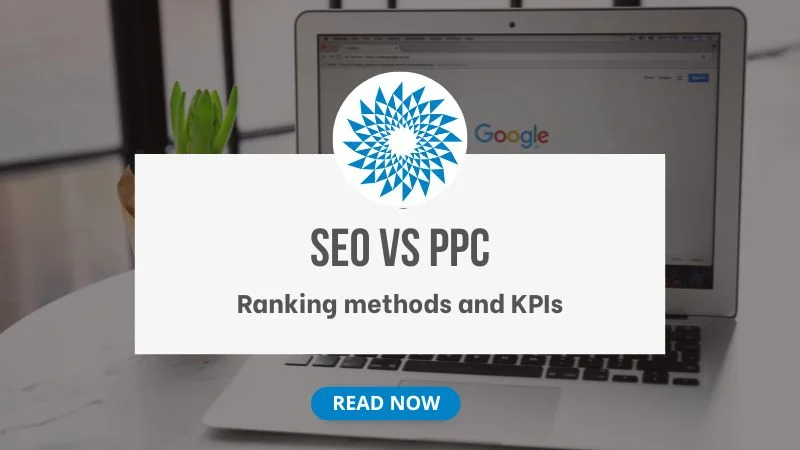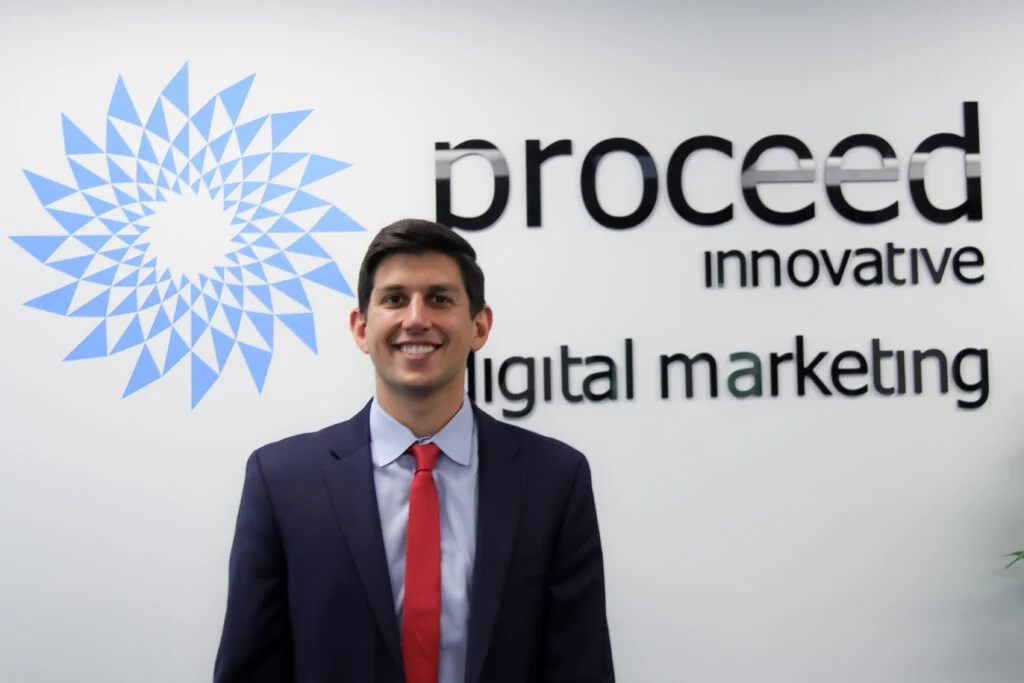A great website only takes you so far as it is important for your website to be found in the search engine results pages (SERPs) to generate traffic, leads, and sales. There are two main strategies that are used to increase the visibility of websites in the SERPs: search engine optimization (SEO) and pay-per click (PPC) advertising.
SEO involves the optimization of the pages of a website to rise in the rankings of the SERPs organically. With this approach, it can take weeks or months for the website to rise in the rankings as a result of SEO strategies. PPC involves paid ads through Google that provide more immediate visibility. While both strategies can be employed to help boost the visibility of a website, leading to more traffic, leads, and conversions, SEO and PPC each require different approaches, and they are not ranked or measured the same way.
In this article and video, we will discuss how the ranking of SEO and PPC differs as well as the key performance indicators (KPIs) to look for to measure the success of each type of campaign. Each method can benefit your digital marketing campaign and they work in different ways to increase your visibility in the rankings and drive more traffic to your website.
How Does the Ranking Differ Between SEO and PPC?
In order to understand the difference in how PPC and SEO are ranked, it is important to know how each strategy works. The goal of SEO is to climb the rankings on the SERPs organically by ensuring your website has quality content, good keyword optimization, and backlinks. Over time, Google will crawl and index your website and determine the ranking of the pages based on a large number of factors, including the value of the content, keyword optimization, and user experience. Keep in mind that you may not see the effects of your SEO strategies for several weeks or even months.
The rankings of PPC ads are determined by the budget of the advertiser and the quality of the ad. These ads can provide immediate visibility but come at a cost. PPC ads are great for increasing visibility fast while building rankings while SEO can help ensure long-term, sustainable visibility.
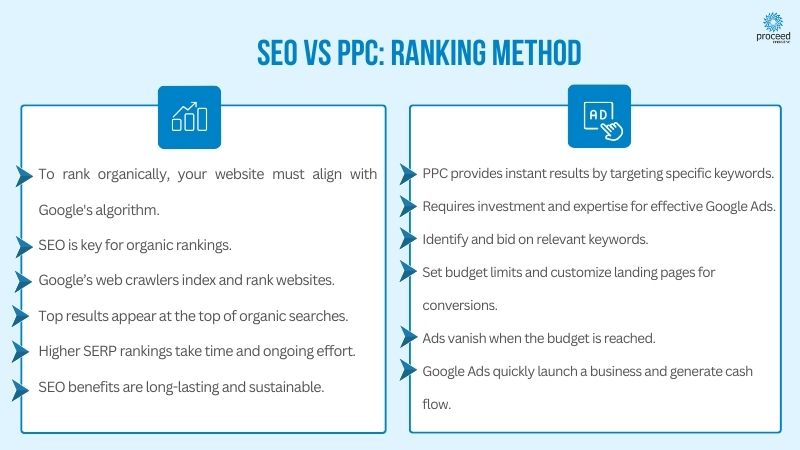
How PPC Ads are Ranked
The ranking of PPC ads is determined by the quality of the ad and financial investment of the advertiser. When setting up a PPC campaign, you must choose a bid amount for each click on your ad to compete with other advertisers for relevant keywords. While bidding more can increase your rankings, the top spots do not always go to the highest bidder. You can also set daily and monthly budget limits, but your ads will disappear from the SERPs once the limit has been reached.
Google assesses all PPC ads including the relevance of the ad to the user’s search, landing page quality, and the expected click-through rate (CTR). The ad is given a Quality Score to ensure that users only see quality ads that are also relevant to their search. The Quality Score is then combined with the bid amount to determine where the PPC ad appears in the SERPs.
When a search query is made on Google and other search engines, the paid ads often appear at the top of the SERPs, above the organic search results. The top positions in the SERPs get more than 25 percent of all web traffic which is why these spots are so valuable. Google may display up to four PPC ads in this space and the top position tends to go to the highest bidder.
The following are the factors that help determine the Quality Score of PPC ads:
- Bid amount: You can get better ad placement with higher bids, but the top spots do not always go to the highest bidder.
- Quality score: This is determined by the relevance of the ad, quality of the landing page that is linked in the ad, and the CTR.
- Ad relevance: Ads will rank better the more relevant they are to the search query made.
The following are challenges you may face running PPC campaigns:
- Cost: Getting into a bidding war with a competitor can significantly drive up the costs.
- Continuous optimization: Ads may need to be adjusted and tested regularly.
- Competition: It can be difficult and time consuming to rank well for highly competitive keywords.
A PPC campaign can be beneficial for the following:
- Announcing a new product or service
- Advertising temporary promotions
- Precise targeting of a specific audience
How SEO Content is Ranked
Organic SEO content is ranked based on the value and relevance it provides to users. The focus of SEO is to get a higher position in the SERPs naturally by optimizing the content of a website. You can optimize your website effectively by creating content that is relevant to the needs and interests of your audience and using relevant keywords in the content while avoiding keyword stuffing.
The quality, relevance, and user engagement of the content are evaluated by search engines like Google, as well as the authority of the website. The goal is to ensure that users find authoritative and valuable content that is relevant to their search queries. Content that provides the best value and answer to the search query is given preference and will rank higher in the SERPs. SEO is a long-term strategy in which consistency, quality, and relevance is rewarded.
Organic search results are free listings that generally start to appear about half way down the SERP. These search results tend to provide more value for the user than paid ads because they are ranked according to their value and relevance as opposed to a monetary investment like PPC ads. It has also been shown that more than 90 percent of users skip past paid ads in the SERPs to get to the organic search results.
The following are the factors that help determine the organic SEO rankings:
- Keyword optimization: The use of relevant keywords strategically to optimize website content.
- Quality content: The quality of the website content based on its value, information, relevance, and engagement.
- Backlinks: Links to your website from relevant reputable websites make your site more credible.
The following are the main challenges of SEO:
- Time consuming: It can take weeks or months for SEO strategies to show results.
- Content saturation: It can be difficult to create content that stands out from the content of your competitors.
- Algorithm changes: You must be able to adapt to new algorithm changes to ensure sustained SEO success.
SEO requires more patience than PPC campaigns, but it can bring the following benefits:
- Cost-effective: If your website ranks well organically, you do not have to pay for visits to your website.
- Longevity: Good organic rankings can result in consistent traffic over a long period of time.
- Increased brand authority: Higher organic rankings build trust and credibility which increases the authority of your brand.
Is it Easier to Measure PPC Campaigns or SEO?
PPC campaigns offer measurable KPIs that are precise and readily available. The main KPIs used to measure the success of PPC campaigns include impressions, clicks, CTR, and conversions. These metrics are exact and provide an accurate assessment of the performance of your ads.
The KPIs used to measure the success of SEO are less direct and require a level of interpretation of the data and trends over time. The main KPIs for SEO include organic traffic, keyword rankings, bounce rate, and average time on the site.
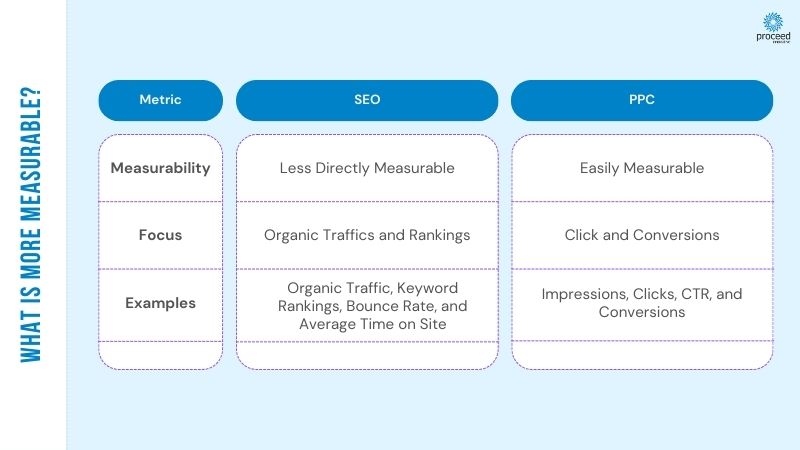
Can PPC Help SEO Rankings?
PPC campaigns do not increase SEO rankings directly, but they can indirectly enhance your overall SEO strategy in the following ways:
- Increase visibility: Having your PPC ads at the top of the SERPs gets the attention of users which increases brand recognition and could result in users searching for your brand in organic searches.
- Brand awareness: The more people see your PPC ads at the top of the SERPs, the more they will become aware of and familiar with your brand.
- Improved CTR: A high CTR through your PPC ads could be a positive sign to search engines which could help with organic rankings.
- Keyword testing: The metrics from PPC ads accurately track the performance of your targeted keywords which can help you determine the most effective keywords to use to optimize your website.
SEO and PPC Management from Proceed Innovative
SEO and PPC campaigns are strategies that differ in their focus and approach but are often used at the same time to help improve visibility, traffic, leads, and conversions. PPC ads are ranked based on the quality of the ad and landing page as well as the investment made by the advertiser, and they can provide immediate visibility to drive more traffic. Organic SEO is more of a long-term strategy that involves the creation of relevant content that is ranked based on quality, value, relevance, and keyword optimization. Organic SEO does not provide results as immediately as PPC, but higher rankings achieved through organic SEO can be sustained over a longer period of time.
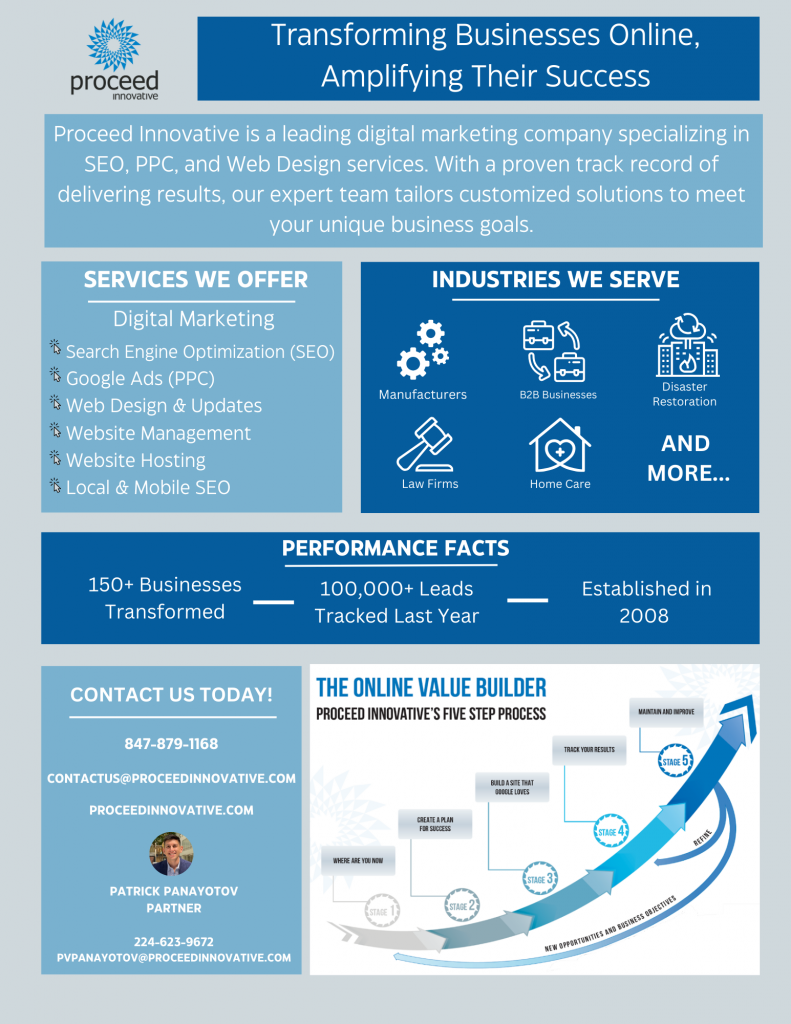
If you want to increase the visibility of your website but do not have the expertise or resources to run a PPC campaign or implement SEO strategies, our professionals at Proceed Innovative can help. We are a full-service digital marketing agency that offers SEO services and PPC management to help business improve their rankings and visibility to get found online. We will work with you to understand your digital marketing goals and provide extensive keyword research to optimize your website, PPC ads, and landing pages. Our professionals have a proven track record of running successful SEO and PPC campaigns that have helped improve the visibility and traffic of our clients.
You can call Proceed Innovative at (800) 933-2402 or submit a contact form for more about our SEO and PPC management services.

